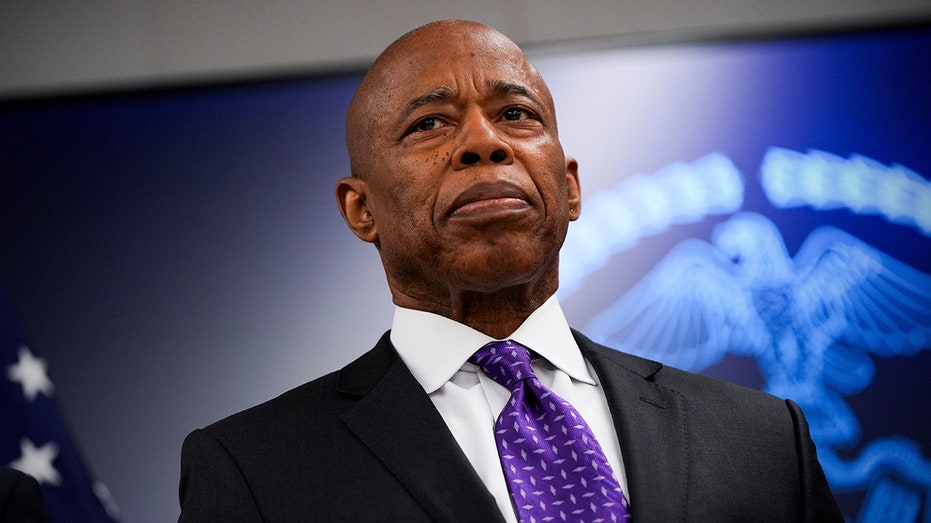Trump DOJ’s Case Against NYC Mayor Eric Adams Dropped Amid Controversy

Sarah Johnson
March 9, 2025
Brief
The Trump-era DOJ dropped its case against NYC Mayor Eric Adams, sparking resignations and debate over political motivations, prosecutorial integrity, and the justice system's discretion.
The U.S. Department of Justice under former President Donald Trump has stirred up a legal storm by dropping its case against New York City Mayor Eric Adams. The fallout from this decision has been nothing short of dramatic, marked by public resignations and fiery debates about the integrity of the nation’s legal system.
Three weeks ago, Danielle Sassoon, then the acting U.S. Attorney for the Southern District of New York, resigned in protest after being instructed to withdraw the prosecution of Adams. Her exit sparked further resignations from her New York-based team and DOJ lawyers in Washington, all of whom opposed the decision. Ultimately, Acting Deputy Attorney General Emil Bove filed the motion to dismiss the case.
The case against Mayor Adams originated during the Biden administration, revolving around a bribery charge involving an upgraded flight to Turkey. Critics claimed the indictment was an act of political retaliation for Adams' outspoken criticism of Biden’s immigration policies. With the Trump DOJ now reversing course, allegations of a quid pro quo have surfaced, accusing the administration of using the dismissal to win over Adams for his post-election cooperation on reversing Biden’s immigration policies.
At a recent hearing, a judge overseeing the case appointed former DOJ Solicitor General Paul Clement as an “amicus” counsel to assess the validity of objections raised by the former prosecutors. Clement’s brief, submitted last Friday, acknowledged the DOJ’s broad discretion to dismiss cases but recommended that the dismissal be “with prejudice,” meaning the charges cannot be refiled in the future. Clement cited public perception concerns, suggesting that Adams might otherwise feel pressured by the possibility of renewed charges.
Interestingly, Clement avoided taking a firm stance on whether the original prosecution was politically motivated or if the dismissal itself represented bad faith. Instead, he argued that either allegation, if proven true, would justify dismissing the case with prejudice.
The DOJ, meanwhile, has doubled down on its authority to move forward with the dismissal. A memorandum signed by Deputy Attorney General Todd Blanche and Acting Deputy Emil Bove emphasized that the decision was made at the highest levels of the DOJ and dismissed dissenting voices within the department as irrelevant. The memo even hinted at an ongoing investigation into the origins of Adams’ indictment and requested that certain communications between prosecutors remain sealed.
While Clement's memo carved out a limited role for the court in assessing motions to dismiss, it ultimately deferred to the executive branch’s nearly unchecked discretion in such matters. The DOJ backed this position with a litany of case law affirming its authority to abandon prosecutions, even post-indictment.
For the now-resigned prosecutors, the decision to drop the case seems to have been a rude awakening. Their protests suggested a belief that any prosecution initiated with sufficient evidence must be carried through to the end, regardless of shifting policy priorities. But as the DOJ memo pointed out, every prosecutorial decision involves trade-offs, and not all of them align with the ideals of career prosecutors.
As the dust settles, this episode serves as a stark reminder of the complexities and compromises that underpin the justice system. Whether you view the dismissal as a necessary course correction or a cynical political maneuver likely depends on where you stand on the broader chessboard of American politics.
Topics
Editor's Comments
The irony here is almost too juicy to ignore: the same system that some prosecutors thought they were defending ended up steamrolling their protests without a second glance. It’s a tough pill to swallow, but maybe the real lesson is that idealism doesn’t always fare well in the messy world of power and politics.
Like this article? Share it with your friends!
If you find this article interesting, feel free to share it with your friends!
Thank you for your support! Sharing is the greatest encouragement for us.



